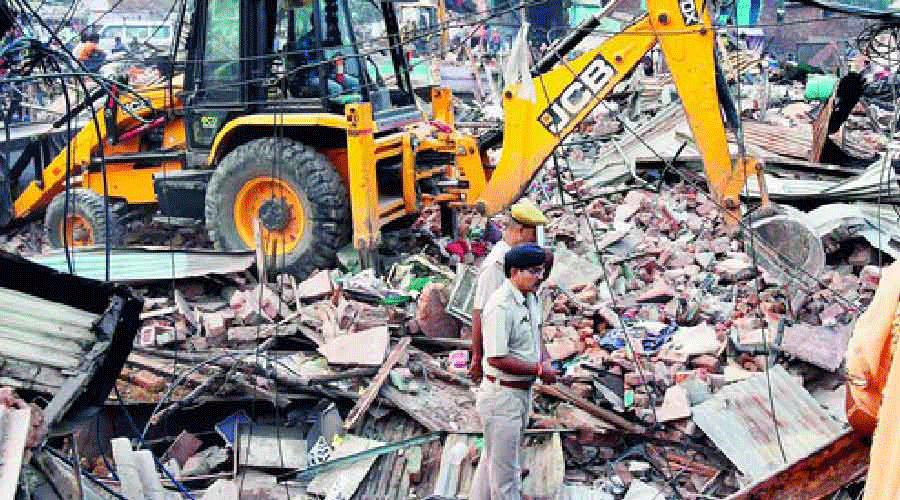On December 27, 2022, at around midnight, I received several calls from Azim (name changed), one of my informants from my fieldwork days in Baghbar, Assam. He sounded worried. “Baideo, those families near Baghbar Pahar have all been evicted. They are living near the road. Do something!”
A day earlier, the district administration had evicted 47 families (mostly Bengali Muslims) who were ‘illegally’ occupying 400 bighas of land allotted to a Bodo farmers’ cooperative in 1992 at Baghbar. Violent evictions of Bengali Muslims by Assam’s right-wing government had been in the news for a while. But news of this eviction felt personal.
In June 2019, I had arrived in Baghbar for my doctoral fieldwork and I worked closely with the communities there for more than two years. Baghbar and Baghbar Pahar, in particular, have an interesting ethnic history. The area that was once dominated by caste Hindu Assamese and Bodo families is now predominantly inhabited by Bengali Muslims. The river’s change of course following an earthquake turned Baghbar Pahar and its surrounding areas into ‘chars’, with many people losing their land and houses to floods and erosion. Many Kalita and Bodo families abandoned their lands and moved elsewhere. At present, except for a few Hindu households, the area is dominated by Bengali Muslims who shifted to the Pahar after losing everything to the river. The Pahar and its surrounding areas continue to receive such ‘internally displaced persons’.
The acute scarcity of land has left many Baghbar inhabitants with no option but to buy government land ‘illegally’ from brokers. The news that committee members of the cooperative (mostly caste Hindus from the Pahar) had taken money from the families who settled on the cooperative’s land does not surprise me. I have known both the caste Hindu committee members and the Bengali Muslims who have been evicted. This narrative is not meant to morally judge either — those who took money or those who settled illegally. This is a narrative addressing people and a state whose privilege and politics allow them to frame some communities as ‘encroachers’ and polarise societies without understanding the contextual specificities of places, rivers and the complex relationships shared between communities in their everyday lives.
Arrangements where committee members have ‘allowed’ Bengali Muslim families to settle on cooperative land were common knowledge. Such arrangements had been in place since 1995. The Hindu committee members were aware of the river’s activities and families becoming homeless in the nearby chars. The cooperative’s land was made available for such families — at a price. Such arrangements permitted co-existence between communities and created spaces of survival in the context of a ‘greedy’ river and a violent State. In fact, many Assamese and Bengali Hindu families are forced to set up their houses on ‘government’ land around Pahar. Hindu committee members allowing landless Bengali Muslim families to settle on government lands at a price is an acknowledgement of a shared fate.
Hindus and Bodos in Baghbar recalled how Bengali Muslims took turns to safeguard the Hindus at night during the Babri Masjid demolition. People would tell me stories of respected villagers hunting tigers if Bengali Muslims complained of their cattle being attacked. They said it was in honour of such people that the village was named ‘Baghbar’.
This is not to deny the ethnic tensions that exist between the communities. But a right-wing State has dissolved such arrangements of co-existence and erased accommodative histories.
Somehow, I feel defeated. For Baghbar, for the people whose complex stories I am well aware of. Assam is transforming; unwanted changes are taking place. The discourse has been shifted to religious identity, once again. Meanwhile, a majoritarian regime that has changed relationships between people sits pretty.
Bhargabi Das, Irish Research Council Scholar, Anthropology, National University of Ireland











